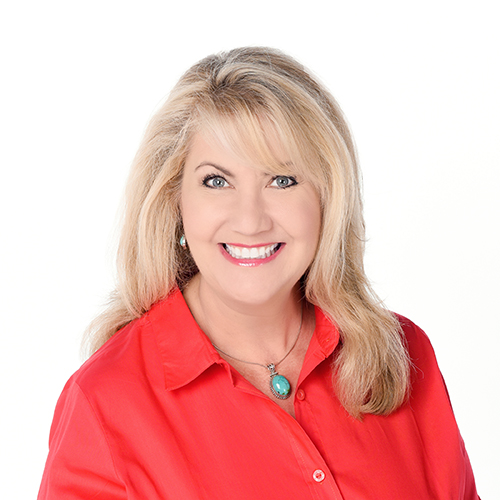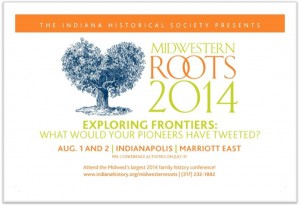by Lisa Cooke | Jan 4, 2017 | 01 What's New, Conferences
Follow me, Lisa Louise Cooke, in 2017 as I share Google research techniques, newspaper research for genealogy, finding living relatives, and much more. I’ll be in Florida in February – here’s the scoop!
The Annual Pinellas Genealogy Society Seminar, co-sponsored by the Largo Public Library, is scheduled for 25 February 2017 at the Largo Public Library from 8 am to 4 pm. The library is located at 120 Central Park Drive, Largo, FL.
 I will be the featured speaker, in addition to three great breakout speakers. My four presentations are:
I will be the featured speaker, in addition to three great breakout speakers. My four presentations are:
1. Google Tools and Procedures for Solving Family History Mysteries
2. Getting the Scoop on Your Ancestors with Newspapers
3. Nine Strategies for Finding Living Relatives
4. Future Technology and Genealogy – 5 Strategies You Need
The topics of the breakout sessions will be (1) “How Do I Organize My Genealogy Records?” by Debbe Hagner, (2) “What’s New at FamilySearch.org with Focus on ‘Memories’” by Debra Fleming, and (3) “English & Welsh Family History: Useful Online Research Resources” by Liz Pearson.
In addition to the speakers, this event boasts a continental breakfast, box lunch, raffles, door prizes, huge book sale, and plenty of time to network with guest organizations and other researchers. The all-inclusive registration fee is $40 for PGS members and $45 for non-members. After 18 February, the cost is $50, so register early.
What: The Annual Pinellas Genealogy Society Seminar co-sponsored by the Largo Public Library
When: Saturday, 25 February 2017, from 8 am to 4 pm
Where: The Largo Public Library at 120 Central Park Drive, Largo, FL.

A detailed schedule of events and a registration form are found at http://www.flpgs.org/NMbrs/seminar/2017/Sem17.aspx . Questions can be addressed to pgsfla@yahoo.com.
My entire lecture schedule for 2017 can be viewed here. I hope to meet with many of you as you pursue genealogy greatness this new year!
by Lisa Cooke | Mar 26, 2014 | 01 What's New, Conferences
I have roots in Indiana and have longed to travel to Hoosier state to conduct some much needed genealogy research. So you can imagine how happy I  was to be invited to keynote at the upcoming Midwestern Roots 2014: Family History and Genealogy Conference being held August 1 and 2, 2014, Indianapolis, IN, at the Indianapolis Marriott East.
was to be invited to keynote at the upcoming Midwestern Roots 2014: Family History and Genealogy Conference being held August 1 and 2, 2014, Indianapolis, IN, at the Indianapolis Marriott East.
This year’s theme is a timely one: Exploring Frontiers: What Would Your Pioneers Have Tweeted? This conference promises to be a glorious melding of old and new with deep history sessions and the latest technology.
Here’s the scoop on the Midwestern Roots Conference:
Registration Opens March 26 with a $99 registration special price March 26-29, 2014.
Includes the two day conference and lunches.
Additional fee for banquet and some pre-conference activities.
Register online at www.indianahistory.org/midwesternroots or
call (317) 232-1882 from 10 a.m.-5 p.m. Thursday through Saturday during the special offer.
The Midwestern Roots 2014 Conference is your chance to get updated on the latest technology changes in family history research, resources and methodology, and I’ll be exploring that in my keynote Future Technology and Genealogy: 5 Strategies You Need. You’ll also experience:
• More than 30 stimulating lectures from nationally known speakers Warren Bittner, Lisa Louise Cooke, Joan Hostetler, Amy Johnson Crow, Thomas MacEntee, James H. Madison, Anne Gillespie Mitchell, Daniel S. Poffenberger, Curt B. Witcher and more
• The Great Google Earth Game Show presented by Lisa Louise Cooke (this will be an interactive, FUN, outside the box kind of session topped off with prizes!)
• Hoosiers and A New History for the Twenty-First Century presented by James H. Madison
• A Guided Tour of Ancestry computer lab taught by Amy Johnson Crow and Anne Gillespie Mitchell from Ancestry.com
• Genealogy Resources Library Workshop
• Writing, document preservation and photo preservation workshops
• Family History Market and Book Fair – open to the public
See you at the Midwestern Roots 2014 Conference!
by Lisa Cooke | Jun 23, 2014 | 01 What's New, Libraries, Photographs, Preservation
You have precious family history files, both physical and digital. Have you ever wondered if they are in the proper form for safe, long term preservation? Consider taking a cue from the United State’s oldest federal cultural institution and the largest library in the world, holding more than 158 million items in various languages, disciplines and formats.
According to their announcement today the Library of Congress today released “a set of recommended formats for a broad spectrum of creative works, ranging from books to digital music, to inform the Library’s acquisition practices. The format recommendations will help ensure the Library’s collections processes are considering and maximizing the long-term preservation potential of its large and varied collections.”
The recommended formats can be viewed here www.loc.gov/preservation/resources/rfs/ and cover six categories of creative output:
- Textual Works and Musical Compositions
- Still Image Works
- Audio Works
- Moving Image Works
- Software and Electronic Gaming and Learning
- Datasets/Databases
What I like about this recommendations is that they rank the various file formats on the digital side of things in order of preference. So even if you aren’t in the position to change your digital file’s format right now, you will know where it falls in the spectrum of long-term preservation.
For example, here are the recommendations for digital photograph files formats in the order of preference:
Formats, in order of preference
- TIFF (uncompressed)
- JPEG2000 (lossless (*.jp2)
- PNG (*.png)
- JPEG/JFIF (*.jpg)
- Digital Negative DNG (*.dng)
- JPEG2000 (lossy) (*.jp2)
- TIFF (compressed)
- BMP (*.bmp)
- GIF (*.gif)
Download the PDF of recommendations from the Library of Congress here
by Lisa Cooke | Apr 2, 2015 | 01 What's New, British, FamilySearch, images, Jewish, Records & databases, Trees, United States

Ketubah Circa 1860.
This is the ketubah (marriage contract) of Hannah and Hayyim from their marriage on Tuesday, April 6, 1886 (א׳ ניסן תרמ״ו) in the town of Brody. Image by Yoel Ben-Avraham on Flickr Creative Commons at https://www.flickr.com/photos/epublicist/1355967207/in/photolist-.
Looking for an online resource of Jewish family trees?
“The Knowles Collection, a quickly growing, free online Jewish genealogy database linking generations of Jewish families from all over the world, reached its one-millionth record milestone and is now easily searchable online,” says a recent FamilySearch press release.
“The collection started from scratch just over seven years ago, with historical records gathered from FamilySearch’s collections. Now the vast majority of new contributions are coming from families and private archives worldwide. The free collection can be accessed at FamilySearch.org/family-trees.
According to FamilySearch, “The databases from the Knowles Collection are unlike other collections in that people are linked as families and the collection can be searched by name, giving researchers access to records of entire families. All records are sourced and show the people who donated the records so cousins can contact one another. New records are added continually, and the collection is growing by about 10,000 names per month from over 80 countries. Corrections are made as the need is found, and new links are added continually.”
The database was started by Todd Knowles, a Jewish genealogy expert at the Family History Library in Salt Lake City. Jewish communities from around the world have added to it: “The Knowles Collection has grown from Jews of the British Isles (now with 208,349 records), to Jews of North America (489,400), Jews of Europe (380,637), Jews of South America and the Caribbean (21,351), Jews of Africa, the Orient, and the Middle East (37,618), and the newest one, Jews of the Southern Pacific (21,518).” Keep up with the Knowles Jewish Collection at its blog.
 I will be the featured speaker, in addition to three great breakout speakers. My four presentations are:
I will be the featured speaker, in addition to three great breakout speakers. My four presentations are:

 was to be invited to keynote at the upcoming Midwestern Roots 2014: Family History and Genealogy Conference being held August 1 and 2, 2014, Indianapolis, IN, at the Indianapolis Marriott East.
was to be invited to keynote at the upcoming Midwestern Roots 2014: Family History and Genealogy Conference being held August 1 and 2, 2014, Indianapolis, IN, at the Indianapolis Marriott East.
